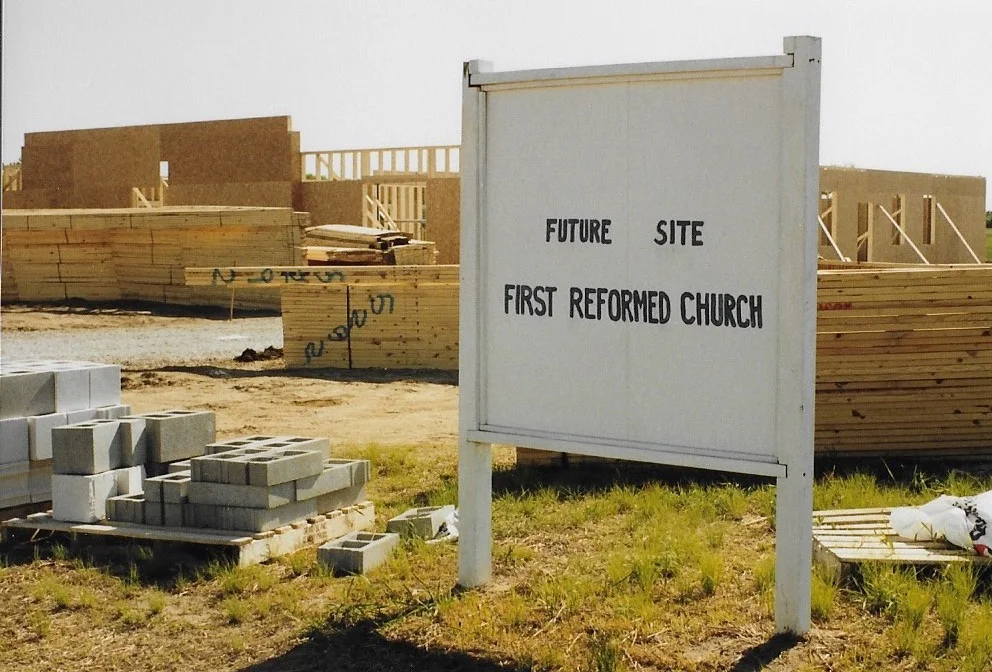I was born in 1867 in Philadelphia, Pennsylvania, in the Joseph Bernard Foundry. I am officially known as number 120NTH6ST, but I prefer to be called by my German name Die Glocke, or in English, The Bell. My bowl is about 24 inches in diameter, I stand about 28 inches high, and weigh about 2200 pounds; I am composed of 153 pounds of copper and 47 pounds of tin. This ratio of 13 parts copper to 4 parts tin was perfected by the Bernard Foundry and made their bells world famous for the quality and clarity of their sound.
Christmas Eve
The year was 1951 in Flint, Michigan. A mother woke up her 12 year old daughter. The girl groggily stirred, unwilling to climb out of her warm bed into the chilly air that had seeped through the thin walls overnight.
“Get up, sweetie. Today is a big day.”
The girl darted awake, suddenly remembering. It was Christmas Eve. She’d been looking forward to this day for weeks.
The German Brotherhood
This post is part of a series on the history of Peace Presbyterian Church as part of our month-long Centennial Celebration. Visit our Stories from the Past blog page or learn more about Celebration Sunday on October 6th.
First Reformed Church’s original building, pictured after its remodel in 1925. This building, on the corner of Buick and Gillespie, was at the literal and cultural center of Volga German life in the years after the migration.
One of the central aspects of First Reformed Church in its early years was the German Brotherhood, an evangelistic subset of Volga Germans founded in Russia that spread to the New World. First Reformed Church met on Sunday morning and Sunday evening in these early years, but the German Brotherhood held services on Saturday nights, Sunday afternoons, and Wednesday evenings as well. These services, held in German, were not only times of worship, but also formed the backbone of the German social community. Men and women would sit on opposite sides of the church, and were often accompanied by music from the German Brotherhood band. They used no hymnbooks, but sang words shouted by a song leader along with tunes that were commonly known. Their times of prayer were heartfelt; members would pray out loud and all at once, and silence would be held by those who had finished praying until the last prayer was finished. Perhaps most interestingly, three members of the Brotherhood would be selected in the service to preach extemporaneously on a previously chosen passage of Scripture.
The Brotherhood was not limited to Flint. There were chapters around the United States, all of whom had roots in Volga German Russia. The Brotherhood in Flint hosted a convention about once a year, typically around Labor Day. German Brothers travelled from as far as Colorado and Nebraska and as close as Saginaw and Owosso. They did not stay in hotels, as local members made great effort to host their Brothers from out of town. These conventions consisted of some business, but much worship and prayer, including a service on Labor Day itself before guests went back home.
The German Brotherhood band, pictured in an unknown year in the 1940s.
The German Brotherhood was a dominant fixture in the life of First Reformed Church over its first decades, and reached its heyday after World War Two. As the years went on, however, the influence of the Brotherhood began to wane. The cultural conservatism of the brothers became more and more out of touch with society as a whole in the post-war era. The fading influence of the German speaking immigrants contributed as well, as the children and grandchildren of the Brothers assimilated into American society. The German Brotherhood continued meeting into the 70s, and even for a few years in the 90s, but has since faded into memories. Today, the influence of the Brotherhood is felt in the lives of those who were reared in its culture. Many members of Peace and other churches owe their love for God and their passion for prayer and his word to the German Brotherhood.
Volga German Roots
The story of Peace Presbyterian Church (founded as First Reformed Church) stretches back much farther than our 100 year history. It begins in Russia in 1762 during the reign of Catherine the Great. In an attempt to modernize Russia in the wake of the Seven Years War, Catherine issued a manifesto inviting German farmers to settle along the Volga River, offering them interest free loans, religious freedom, and exemption from military service.





